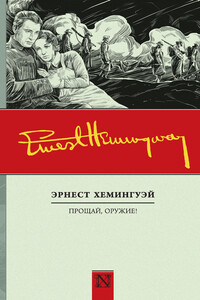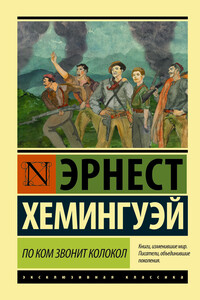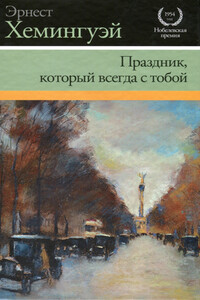Finally he put the mast down and stood up. He picked the mast up and put it on his shoulder and started up the road. He had to sit down five times before he reached his shack.
Inside the shack he leaned the mast against the wall. In the dark he found a water bottle and took a drink. Then he lay down on the bed. He pulled the blanket over his shoulders and then over his back and legs and he slept face down on the newspapers with his arms out straight and the palms of his hands up.
He was asleep when the boy looked in the door in the morning (он спал, когда мальчик заглянул утром). It was blowing so hard that the drifting-boats would not be going out (ветер был настолько сильным, что лодки не вышли в море) and the boy had slept late (и мальчик проспал допоздна) and then come to the old man's shack (и затем пошел в хижину старика) as he had come each morning (как делал это каждое утро). The boy saw that the old man was breathing (мальчик увидел, что старик дышит) and then he saw the old man's hands and he started to cry (а затем он увидел руки старика и заплакал: «начал плакать»). He went out very quietly (он вышел наружу очень тихо) to go to bring some coffee (чтобы сходить за кофе) and all the way down the road he was crying (и всю дорогу он плакал).
Many fishermen were around the skiff (вокруг лодки было много рыбаков) looking at what was lashed beside it (которые смотрели на то, что было привязано к ее борту) and one was in the water (один из них был в воде), his trousers rolled up (с закатанными брюками), measuring the skeleton with a length of line (измеряя длину скелета веревкой: «длиной веревки»).
The boy did not go down (мальчик не спустился). He had been there before (он был там раньше) and one of the fishermen was looking after the skiff for him (и один из рыбаков присматривал за лодкой ради него).
"How is he (как он)?" one of the fishermen shouted (крикнул один из рыбаков).
"Sleeping (спит)," the boy called. He did not care that they saw him crying (ему было безразлично, что они видят, как он плачет; to care — заботиться). "Let no one disturb him (пускай никто его не беспокоит)."
measure ['meZq], disturb [dI'stWb], cry [kraI]
He was asleep when the boy looked in the door in the morning. It was blowing so hard that the drifting-boats would not be going out and the boy had slept late and then come to the old man's shack as he had come each morning. The boy saw that the old man was breathing and then he saw the old man's hands and he started to cry. He went out very quietly to go to bring some coffee and all the way down the road he was crying.
Many fishermen were around the skiff looking at what was lashed beside it and one was in the water, his trousers rolled up, measuring the skeleton with a length of line.
The boy did not go down. He had been there before and one of the fishermen was looking after the skiff for him.
"How is he?" one of the fishermen shouted.
"Sleeping," the boy called. He did not care that they saw him crying. "Let no one disturb him."
"He was eighteen feet from nose to tail (она была восемнадцать футов от носа до хвоста)," the fisherman who was measuring him called (крикнул рыбак, измерявший рыбу).
"I believe it (я верю в это = вот так-то)," the boy said.
He went into the Terrace and asked for a can of coffee (он пошел на Террасу и попросил банку кофе).
"Hot and with plenty of milk and sugar in it (горячий, много молока и сахара; plenty — /из/обилие; множество)."
"Anything more (что-нибудь еще)?"
"No. Afterwards I will see what he can eat (потом посмотрю, что он сможет съесть)."
"What a fish it was (что это была за рыба!)," the proprietor said (сказал хозяин). "There has never been such a fish (никогда не было такой рыбы). Those were two fine fish you took yesterday too (те две рыбы, которые ты поймал, тоже были хороши)."
"Damn my fish (к черту мою рыбу)," the boy said and he started to cry again (и снова заплакал).
"Do you want a drink of any kind (хочешь чего-нибудь выпить; of any kind — какого-либо рода)?" the proprietor asked.




